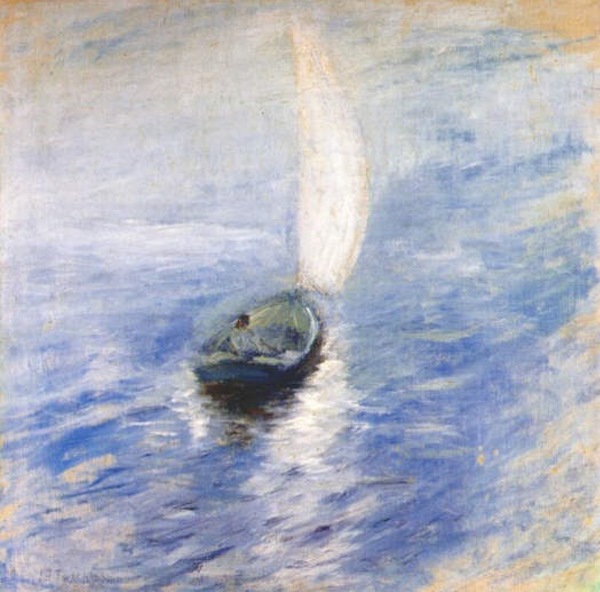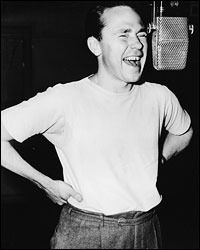 A warm breeze mussed my hair as I sat by the pool of the Biltmore Hotel, shuffling through the six thousand tunes on my iPod and thinking of nothing in particular. Having spent the whole morning writing, I felt entitled to spend the whole afternoon basking in the sun. Life is almost never as fair as that, but sometimes things do end up working out the way you think they should, and I was more determined than usual to make them do so.
A warm breeze mussed my hair as I sat by the pool of the Biltmore Hotel, shuffling through the six thousand tunes on my iPod and thinking of nothing in particular. Having spent the whole morning writing, I felt entitled to spend the whole afternoon basking in the sun. Life is almost never as fair as that, but sometimes things do end up working out the way you think they should, and I was more determined than usual to make them do so.
Having chosen long ago to strap myself to the wheel of ambition, I now spend much of my time–probably too much–staring at the stage of a theater or the screen of my laptop, doing my best to write as well as I can between now and the next deadline. It’s the life I wanted, insofar as anybody can know what he wants before he gets it, and I usually find it satisfying. At some point along the way, though, I lost the ability to sit and do nothing. On those infrequent occasions when I find myself with nothing to do, my brain slips back into gear, my fingers start twitching, and before long I’m sitting at the computer once more, tapping away at the keys.
In recent years I’ve learned what most ambitious people figure out sooner or later, which is that the only way to break free from the clutches of self-imposed responsibilities is to rip yourself out of your daily routine, however briefly, and go to a place where you can’t work. Distraction is the key, and for me the sight and sound of moving water is the most powerful of distractions, so I went down to the pool of the Biltmore Hotel, sat beside Mrs. T, and let my mind wander. Though no one was swimming–it wasn’t quite warm enough–the breeze made the surface of the water shimmer so delicately that I found it hard to concentrate on my book. I looked at the water and listened to music, and was, for a time, content.
We have it on the best of authority, alas, that nature abhors a vacuum, and in my experience she looks for opportunities to fill it with unwelcome thoughts. On this golden afternoon, the occasion for those thoughts was, much to my surprise, a song by Johnny Mercer that my iPod chose to play for me:
Ah, the apple trees,
Sunlit memories,
Where the hammock swung,
On our backs we’d lie;
Looking at the sky,
Till the stars were strung,
When the world was young.
 “When the World Was Young” is, of course, the most gently nostalgic of songs, and no sooner did it start to play than I set sail on the sea of nostalgia, floating idly from memory to memory. Some were sweet, others hurtful–nostalgia can sting like a frightened bee–but all had in common the salient aspect of the emotion that triggered them, which is that they were inaccessible. I longed to be present, to seize the day, and instead I found myself grasping vainly at the unchangeable past, which is ever and always a recipe for unappeasable regret.
“When the World Was Young” is, of course, the most gently nostalgic of songs, and no sooner did it start to play than I set sail on the sea of nostalgia, floating idly from memory to memory. Some were sweet, others hurtful–nostalgia can sting like a frightened bee–but all had in common the salient aspect of the emotion that triggered them, which is that they were inaccessible. I longed to be present, to seize the day, and instead I found myself grasping vainly at the unchangeable past, which is ever and always a recipe for unappeasable regret.
Suddenly my memory dredged up a long-forgotten image, one so unexpected that it made me speak out loud. “Do you remember what we were doing three years ago?” I asked Mrs. T. “We were staying at the Biltmore, sitting by the pool, and I was phoning in corrections to the galley proofs of Pops. I was talking to an editor in Boston, and I think maybe it was snowing there.”
“I think you’re right,” she replied.
In an instant my mind snapped back three years, and regret quickly gave way to delight. For in the winter of 2009 I was not only correcting the galleys of Pops but making my final changes to the libretto of The Letter, my first opera, and I had no idea how completely those two projects were destined to upend my life. If you’d told me that the success of Pops and The Letter would soon inspire me to write a play, I would have laughed at you. If you’d gone on to tell me that the play in question was going to be produced by one of my favorite theater companies, acted by one of my favorite actors, and staged by one of my favorite directors, the laughter would have been raucously dismissive.
As I mulled over the improbable coincidence, a phrase popped into my head: This moment, this minute… I knew that it came from a song, but I couldn’t recall its name. Then I picked up my iPod and searched for recordings by Mabel Mercer, and seconds later her voice filled my ears:
This moment, this minute,
And each second in it
Will leave a glow upon the sky,
And as time goes by,
It will never die.
 Johnny Mercer wrote those words, too. They’re the verse to “My Shining Hour,” a song that he wrote with Harold Arlen in 1943, midway through World War II. As Mabel Mercer sang them with the matchless warmth and gravity that were hers alone, I steered my boat home from the sea of nostalgia and gratefully embraced the present. To do anything else, I knew instinctively, would be to insult the fate that has given me so much of what I wanted out of life, plus innumerable good things that I didn’t know I wanted, or never dared to dream of being given.
Johnny Mercer wrote those words, too. They’re the verse to “My Shining Hour,” a song that he wrote with Harold Arlen in 1943, midway through World War II. As Mabel Mercer sang them with the matchless warmth and gravity that were hers alone, I steered my boat home from the sea of nostalgia and gratefully embraced the present. To do anything else, I knew instinctively, would be to insult the fate that has given me so much of what I wanted out of life, plus innumerable good things that I didn’t know I wanted, or never dared to dream of being given.
For all the seductive power of nostalgia, it is only in the present that we can hope to do anything that will be worth remembering in the future. “Why are you stingy with yourselves?” George Balanchine used to ask his dancers. “Why are you holding back? What are you saving for–for another time? There are no other times. There is only now. Right now.”
I’ll try to remember those words the next time I find myself sitting by a swimming pool on a golden afternoon.
* * *
Peggy Lee sings “When the World Was Young” on The Judy Garland Show in 1963:
